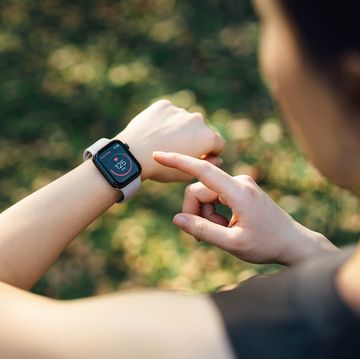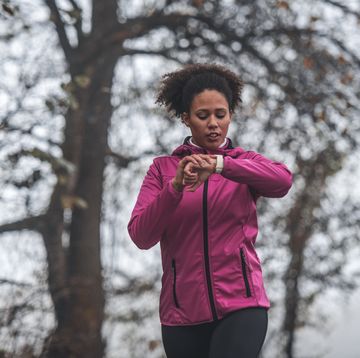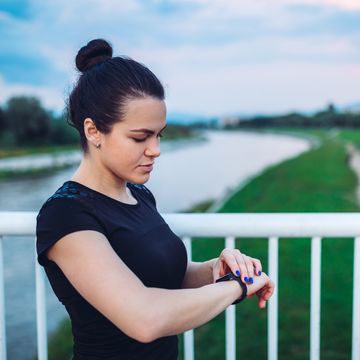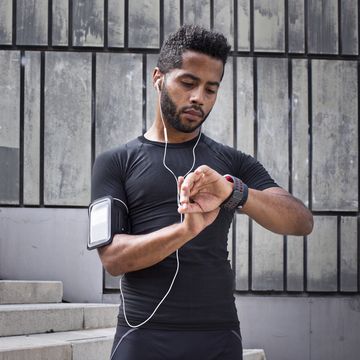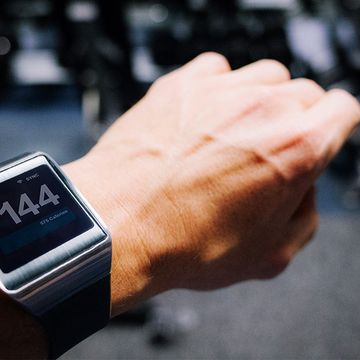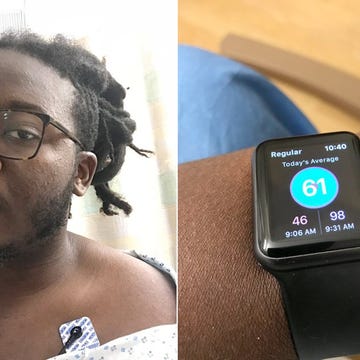I’m a 53 year old woman, 5’7” and 160lbs. I began a walk/run routine two years ago and recently progressed to all running, completing my first 5K this month.
What Is Heart Rate Variability heart rate monitor while running, I’ve found my heart rate averages 140-150bpm, and climbs to 168-178pm when racing. I felt slightly tired while racing hills, but that was to be expected since I rarely run hills. Is my heart rate too high, even though I feel fine?
Vanessa
Vanessa-
As you have already discovered, heart rate monitors provide useful data about our heart rate response to exercise and training; however, there are some discrepancies, especially when using the general heart rate formulas. The problem is that general formula begins with the number of 220 (which is the average heart rate of an infant) and then you subtract your age—because in general, the average heart slows about one beat per year—for your maximum heart rate result. These general assumptions give us a ball park figure, but are hardly accurate enough to base your training on.
It's also important to note that anyone over the age of 35 should always consult their physician before beginning an exercise program. Since you are over 35 years of age, I suggest you see your physician and discuss your heart rates. Your physician may recommend a stress test, which provides very valuable diagnostic information. Maximal stress tests require a physician's presence, usually a cardiologist, along with an exercise physiologist and a nurse. A maximal stress test for a runner would be a treadmill test that begins at an easy level and then increases in intensity every three minutes by upping the speed and the incline of the treadmill. Your heart rate and blood pressure is measured at each stage. Once the intensity level goes up, but your heart rate does not, you know you are at your max…along with the fact that, at this point, you want to STOP!
When stress tests are not indicated, you can use the readings from your HR monitor and combine them with your perceived exertion level for each workout. This combination will help give you a good starting point to find your training zones. If a workout feels easy, it is easy. Record that heart rate. If a workout feels hard, it is hard, and record that heart rate too. When you race, record those heart rates. Soon you will have your easy workout heart rates, your hard workout heart rates, and your racing heart rates. By recording these heart rates along with how you feel, you will begin to see a pattern and have a better idea of your specific heart rate training zones.
I encourage you to continue monitoring your resting heart rate as well. This is one of my favorite training tools because it offers great insight into your body...and it's free! Each morning, before rising, measure your heart rate and record it. As fitness levels improve, resting heart rates decline. By recording it daily, you will find your normal baseline. If your resting heart rate spikes up by 10 beats or more, take note! This is a sign that something is up, so heed the warning. It can be an indication of stress, fatigue, lack of sleep, not recovered from a previous workout, illness coming on, etc. If you see this, take care of yourself. Sleep in, skip your workout, or change a hard workout to a very easy short run, practice relaxation or meditation exercises, stretch, or improve your diet until your resting heart rate returns to it's normal rate.
One of the most important gifts running gives us is learning about our bodies. Enjoy that gift and use it wisely by listening to the signals and obeying them. Always listen to your body for the best training results.
Health & Injuries,
Is My Resting Heart Rate Too Low
Susan Paul has coached more than 2,000 runners and is an exercise physiologist and program director for the Orlando Track Shack Foundation. For more information, visit www.trackshack.com.
Have a question for our beginners experts? E-mail it to [email protected]. NOTE: Due to the volume of mail, we regret that we cannot answer every e-mail.

Susan Paul has coached more than 2,000 runners and is an exercise physiologist and program director for the Orlando Track Shack Foundation. For more information, visit www.trackshack.com.





